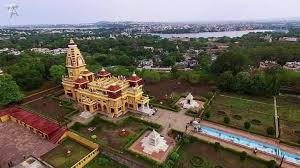It is not often that a nation’s leader transforms a radio broadcast into a moral conversation with its people. Yet, in the luminous cadence of Mann Ki Baat, Prime Minister Narendra Modi has done precisely that, creating a participatory forum that both reflects and renews India’s social imagination. On Sunday, as Chief Minister Dr. Mohan Yadav joined citizens in Bhopal to listen to the 127th edition of the programme, he observed that the Prime Minister’s initiatives and innovations have infused the Republic with an unmistakable current of optimism, an energy that animates governance with purpose.
Dr. Yadav aptly described Mann Ki Baat as a microcosm of India, a narrative of a thousand voices threaded together into the symphony of one nation. In its stories of farmers adapting innovation, artisans reviving heritage, and youth rediscovering tradition, the broadcast has mapped the emotional and intellectual geography of New India. It is celebratory, instructive, and unifying without the sterility of propaganda. What emerges is not the leader’s monologue but the republic’s conscience, alert, striving, and restless with possibility.
The Chief Minister’s remarks also recalled the deeper cultural substratum that sustains the nation’s modern confidence. By highlighting the Prime Minister’s reference to the youth’s growing affection for Sanskrit, Dr. Yadav underlined the continuity between India’s ancient civilizational grammar and its contemporary lexicon of progress. Language, as the Prime Minister noted, is not merely a vehicle of speech but of values. The resurgence of Sanskrit represents not nostalgia, but self recognition, a people re identifying with their intellectual ancestry while modernizing their aspirations.
Equally resonant was the Prime Minister’s invocation of tribal icons such as Birsa Munda, whose legacy of courage and resistance will be commemorated as Janjatiya Gaurav Divas on November 15. In celebrating the indomitable spirit of India’s indigenous communities, the Prime Minister’s message situates pride within inclusivity, reminding a nation that identity and diversity coexist not as opposites but as foundations of strength.
Dr. Yadav’s reflections on Mann Ki Baat converged on a broader truth, that civic responsibility and self reliance are not merely policy themes but cultural disciplines. His call for a renewed commitment to Swadeshi echoed the old Gandhian ethic, recast for an age of global integration. In connecting citizens to local enterprise, innovation, and ethical consumption, Mann Ki Baat continues to redefine patriotism as participation rather than profession.
The discourse of Mann Ki Baat, and its reception across the length of the nation, suggests that India’s moral infrastructure can be strengthened without descending into moralizing. It transforms the monsoon of policy announcements into a dialogue of ideas. In that sense, it is less a government programme than a national diary, one that records not the politics of power, but the poetics of progress.
If governance is, at its best, the art of listening, then this episodic conversation between the state and its citizens has become India’s most enduring democratic ritual, where policy meets poetry, and leadership finds its echo in the aspirations of its people.




